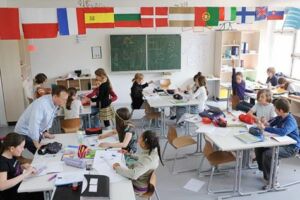News
Danish children’s school performance affected by classroom air quality
This article is more than 10 years old.
Test results shot up 7 percent when location was changed

Student performance affected significantly by air quality, scientists say (photo: Jens Rötzsch)
According to a study by scientists at Aarhus University, the quality of air in classrooms does affect the performance of the students, which will make alarming reading for the many schools adjudged to have a poor working environment by a 2012-13 Arbejdstilsynet report.
READ MORE: Every third Danish school has a poor working environment
The scientists contend that more than half of the nation’s classrooms have bad air quality – with CO2 levels two to three times higher than permitted in modern buildings – and that it affects the children’s concentration and performance in tests.
Test yields damning results
The scientists gave the same test to two groups of students aged 10-11 in Aarhus – one class sat it in their normal classroom and another in a well-ventilated room.
Not only did the kids with the fresher air seem more active, they scored 7 percent higher in the test than they normally do.
READ MORE: Clearing the classroom air
Some kids have an advantage
“The schools we selected are quite common by Danish standards,” noted the head of the research team, Steffen Petersen.
“Our results indicate that children who attend a newly-built school are in a healthier and more productive learning environment than what we offer to the majority of Danish schoolchildren.”
Some 70 percent of Danish schools are over 40 years old.










































